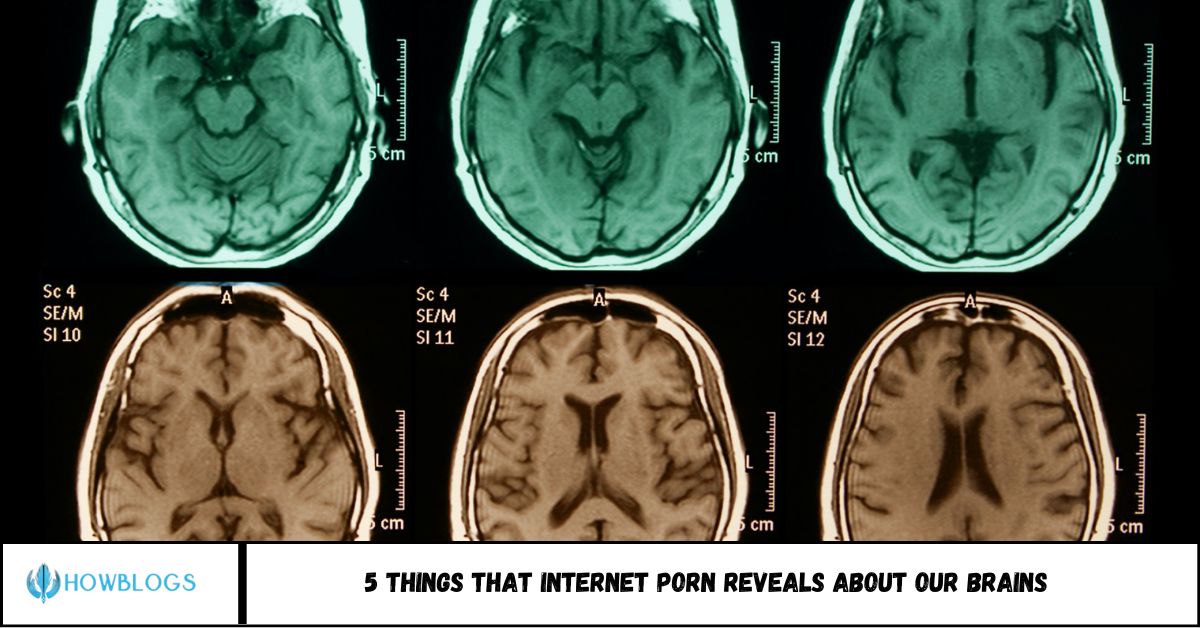Table of Contents
That’s a question more people are asking and with good reason. Internet porn isn’t just a form of entertainment; it’s a tool that interacts directly with your brain’s most sensitive systems. Whether it’s occasional or compulsive, online porn consumption has measurable effects on how we think, feel, and connect.
In this article, you’ll learn 5 surprising ways internet porn changes your brain—starting with simple dopamine shifts and moving into emotional, cognitive, and behavioral consequences. Let’s break it down.
What if the most honest map of human desire wasn’t in a lab, but in your search history?
With total anonymity and endless access, the internet has become a massive confessional for the world’s most private desires. Curious about what we truly want when no one’s watching, neuroscientists Ogi Ogas and Sai Gaddam—then Ph.D. students at Boston University—dug deep into search engine data from platforms like AOL and Dogpile. What they uncovered wasn’t just shocking—it was historic.
Analyzing over a billion web searches from more than 100 million users, their study became the largest exploration of human sexuality since Alfred Kinsey’s mid-20th-century interviews. But instead of relying on self-reports or small samples, this research used raw digital behavior to expose the patterns, fantasies, and fetishes we don’t say out loud.
By leveraging web traffic tools like Alexa and skipping the guesswork, Ogas and Gaddam revealed how sexual curiosity plays out in real time—unfiltered, unedited, and undeniably human. Their findings, published in A Billion Wicked Thoughts, dive into everything from gender differences in desire to the kinks we didn’t even know were common.
1. Porn Hijacks Your Brain’s Reward System
At its core, porn is a superstimulus. It gives your brain a massive dopamine spike—more than you’d get from real-life intimacy. Over time, your reward system becomes duller. Ordinary things like music, food, or even relationships may no longer feel exciting. Your brain starts chasing novelty over connection, needing more variety and intensity to feel the same buzz.
2. It Weakens Impulse Control
The more your brain expects instant gratification, the harder it becomes to delay impulses. That means decision-making, focus, and discipline all take a hit. Your prefrontal cortex—the area that helps regulate judgment—is overworked and under-rewarded, leaving you more reactive and distracted in daily life.
3. Mood Fluctuations Become the Norm
Many users experience emotional swings. It often starts with a short high, followed by guilt, anxiety, or low energy. With frequent use, the brain’s chemistry changes. It becomes harder to feel good without that specific dopamine trigger. Over time, this can lead to chronic mood instability or even depression-like symptoms.
4. It Fuels Escalation and Risky Curiosity
Your brain adapts fast. What excited you last week may seem boring today. That leads many people to seek more extreme or niche content—not always by choice, but because the brain’s dopamine tolerance has shifted. This escalation can make it harder to feel satisfied with normal stimuli, and it reinforces compulsive behavior
5. It Distorts Real-Life Intimacy
Screens offer unlimited novelty and zero vulnerability. But real relationships require effort, patience, and emotional presence. Over time, porn trains the brain to expect arousal without connection, intimacy without trust, and control without communication. That makes it harder to be present with a real partner—and can lead to emotional disconnection.
Key Takeaways:
- Desensitization reduces pleasure in everyday life
- Impulse control weakens, affecting focus and judgment
- Mood and motivation suffer with regular use
- Escalation leads to riskier or more extreme habits
- Intimacy distortion harms real-world relationships
Frequently Asked Questions (FAQs)
1. Can watching porn daily affect mental clarity?
Yes. Over time, frequent use can reduce motivation, focus, and overall mental sharpness.
2. Does porn really change brain structure?
Yes, especially with chronic use. It can alter areas tied to decision-making, impulse control, and emotion regulation.
3. Can these brain changes be reversed?
In many cases, yes. Reducing use, improving sleep, exercising, and reconnecting socially can help restore balance.
4. Why do I feel low after watching porn?
That’s due to a dopamine drop. Your brain spikes during viewing, then crashes afterward, often leading to guilt or emotional numbness.
5. Is occasional porn use harmful?
Occasional use may not cause major issues for everyone, but regular, compulsive patterns are more likely to create lasting effects.
6. Can quitting porn improve mood and energy?
Yes. Many people report better focus, improved confidence, and higher energy levels after reducing or quitting porn.
Conclusion
Internet porn doesn’t just affect what you watch—it changes how your brain works. It alters reward sensitivity, messes with mood, and reshapes how you view real intimacy. But here’s the truth: your brain can heal. With awareness, intention, and a bit of patience, you can retrain your mind, reclaim focus, and reconnect with real joy.

